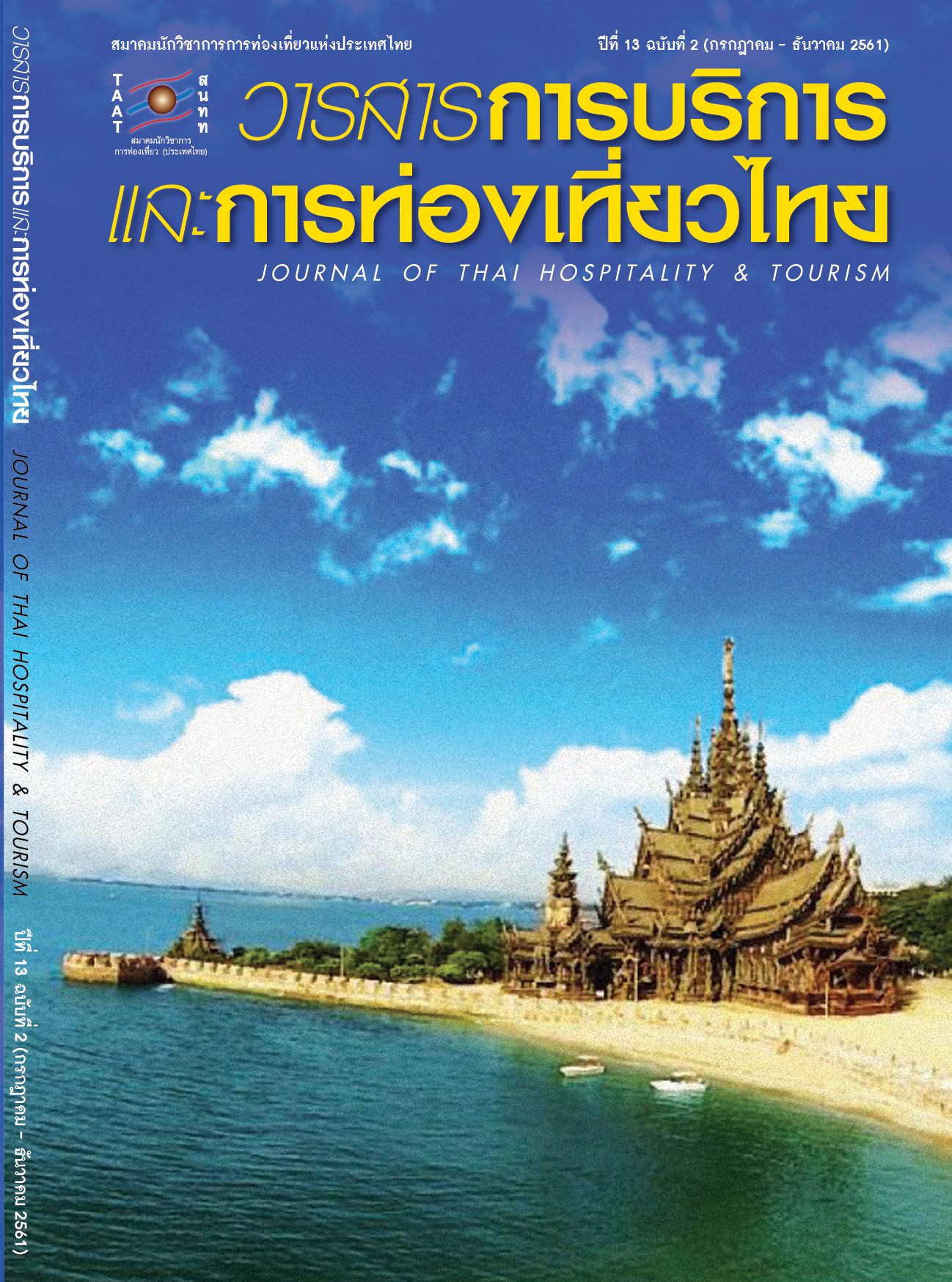Sport Event Management Model of Thai Football Clubs for Promoting Tourism
Main Article Content
Abstract
A great number of sporting venues of Thai football clubs have become captivating tourism attractions; however, some football clubs are not very successful at organizing sporting events to promote tourism. Consequently, this study aims to investigate the objectives and elements of sports tourism management, to construct the model of sport tourism management, and to develop the appropriateness of the sporting management model in order to promote the tourism of Thai football clubs. The mixed method was used to conduct this research by using qualitative and quantitative research. The case study was the football clubs competing in Thai Premier League. The unit of analysis was sport tourism management.
According to the findings, 8 important elements which consist of 72 variables are in accordance with concepts and theories. Based on the factor loading method, standard deviations were ranked in descending order as follows. The first element is Administration which consists of 3 major tasks: general management, tournament management, and destination marketing. The administration tasks mainly involve building football clubs’ brands, public relations, sports marketing, promoting tourism to build up club images, and promotion. The second is Operation which means the tasks undertaken during the period of organizing sports tourism events. The third is Risk management referring to all preparation tasks for an upcoming sports tourism event. The fourth is Service, regarding services and tourist right protection. The fifth is Security which includes the tasks related to safety prevention and decision making schemes for unexpected incidents. The sixth is Relations or the tasks which emphasize the sustainability of sporting event tourism. The seventh is Tourist Attraction including the tasks which create history, experiences, impression, and identities of tourism attractions and football clubs. The last element is Design which refers to all designing tasks occurring while organizing sporting events. All tasks aim to optimize the efficiency of operational outcomes so as enhance the tourism of Thai football clubs.
Article Details
References
[2] Getz, D. (2008). Event Tourism: Definition, Evolution, and Research. Tourism Management, 29(3), 403–428.
[3] Gibson, H. J. (1998). Sport Tourism: A Critical Analysis of Research. Sport Management Review, 1, 45-76.
[4] Gratton, C. & Taylor, P. (2000). Economics of Sport and Recreation. London: E & F. N. Spon.
[5] Hinch, T. & Higham, J. (2001). Sport Tourism: A Framework of Research. International Journal of Tourism Research, 3(1), 45-53.
[6] Kim, N. S. & Chalip, L. (2003). Why Travel to the FIFA World Cup? Effects of Motives, Background, Interest, and Constraints. Science Direct, 25, 695–707.
[7] Kim, Y. H. (2013). An Assessment of Sport Event Tourists’ Motivation with a Framework: A Case Study at a Southeast Conference Football Game. Journal of Tourism Research & Hospitality, 2(2), 2-7.
[8] Koozehchian, H., Ehsani, M. & Firouzjah, J. A. (2011). An Investigation of the Effective Factors on Sport Tourism Development in IRAN with the Emphasis on Natural - Sport Attractions. World Journal of Sport Sciences. 5(4), 216-221.
[9] Korsinkar, Ong-Arj. (2014). The Strategic Management Model for Professional Football in Thai Premier League Development in to International Competition (Unpublished Doctoral Dissertation). Sripatum University, Bangkok, Thailand.
[10] Kurtzman, J. & Zauhar, J. (2003). A Wave in Time – The Sports Tourism Phenomena. Journal of Sport Tourism, 8(1), 35-47.
[11] Masterman, G. (2014). Strategic Sports Event Management. 3rd ed. New York: Routledge.
[12] Morrison, A. M. & Mill, R. C. (1992). The Tourism System, An Introduction Text. New Jersey: Prentice Hall.
[13] Office of the Official Information Commission. (2014). National Tourism Development Plan 2012-2016. Retrieved from https://www.oic.go.th.
[14] Standeven, J. & De Knop, P. (1999). Sport Tourism. Champaign, IL: Human Kinetics.
[15] Toohey, K., Taylor, T. & Lee, C. (2003). The FIFA World Cup 2002: The Effects of Terrorism on Sport Tourists. Journal of Sport Tourism, 8(February 2003), 9-20.
[16] Tourism Authority of Thailand. (2012). eTAT Sport Tourism. TAT Tourism Journal Vol.2.


